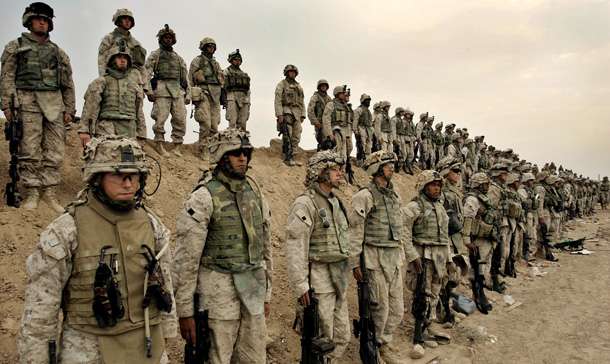“Those who wish to perfect themselves must regard their losses as lessons and learn from them what sorts of things to avoid in the future.”*…
Ponder a mystery…
Ask 100 historians to rank the foreign policy teams of the post Truman presidencies. What might they say? My wager: the majority would pinpoint the administration of George H.W. Bush as the most accomplished of the modern era. The men and women who served under President Bush have a distinguished list of accomplishments to their name: they brought the Cold War to a victorious conclusion, integrated two Germanies into one whole, managed the collapse of the Soviet Union and the communist bloc without the outbreak of violence, shepherded South Korea and the Philippines into the democratic fold, saved South America from a regional debt crisis, enshrined human rights and neoliberal economics as the conceptual foundation stones of the new post-Cold War order, and presided over two military victories—first in the now largely forgotten Panama intervention, second in the defeat of Saddam Hussein’s invasion of Kuwait. That war’s 100-hour land campaign was one of the most spectacular military triumphs in American history—a triumph made the more impressive by the massive global backing the Bush team mustered to support it. A vast number of countries mobilized troops to join in the coalition, even the Soviet Union supported this American-led intervention, and the United States did not have to pay a dime. Allies abroad were convinced to finance all operations.
It is a substantial set of accomplishments. Even those who might disagree with some of their favored policies (say the administration’s embrace of free trade as a bedrock principle of their new world order) will admit that the foreign policy team that directed America in the late Reagan and Bush Sr. years was fantastically effective at moving the world towards their own vision of the good.
Such nice things cannot be said for the poorest showing of the post-Truman era. Here again a commanding majority of experts is likely to have a consensus candidate: the administration of George W. Bush, particularly during its first term. The demerits are many: a poorly conceived strategy of the War on Terror, the disastrous invasion of Iraq, the mismanagement of that country’s occupation, their failure to prevent its subsequent descent into civil war, the mistaken attempt to remake the People’s Republic of China a “responsible stakeholder” in an American led international system, and Russia’s alienation from this same system all occurred under the watch of the Bush 43 team. To this may be added a one final disaster, the subject of this series: it was this group of statesmen that had responsibility for Afghanistan in the early aughts. As they squabbled in Washington, their field of victory sank into our military quagmire.
How different the legacies of these two groups of officials!
But there is the catch: these are not two groups of officials. The national security teams of Bush 41 and Bush 43, America’s most accomplished and most reviled set of statesmen officials… were the exact same set of people. The authors of America’s Cold War victory were the architects of America’s 21st century defeats. There lies the mystery! With more collective experience under their belts than any foreign policy team since the Founding Era, with a greater list of accomplishments than any group of national security elites since the creation of the modern national security state, the statesmen-officials of the second Bush administration should have accomplished glorious deeds. They should have lived up to their track records. Instead, they delivered failure and catastrophe. How could this have happened?…
Find out at “Learning From Our Defeat: The Skill of the Vulcans,” from Tanner Greer (@Scholars_Stage).
[Image above: source]
###
As we learn from our mistakes, we might recall that it was on this date in 2014 that One World Trade Center formally opened in lower Manhattan. The tallest building in the Western Hemisphere, it was erected as a replacement for (and is the namesake of) the North Tower of the original World Trade Center, which was destroyed in the terrorist attacks of September 11, 2001.


You must be logged in to post a comment.